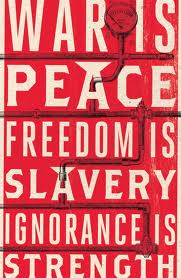This semester I taught a course on “Israeli identity” at Sapir College. Half the students were Israeli Jews and half were Palestinian citizens of Israel, most of them Bedouin. Topics included the Israel-Palestine conflict, religious-secular tensions, Ashkenazi-Sephardic tensions, the memory of the Holocaust, etc.
In one of the classes we discussed the foundational event of the 1948 war and the place of the Nakba in contemporary Israeli consciousness, among Jews as well as Arabs. I showed the Nakba Map published by Zochrot. We didn’t discuss who was responsible for what had occurred, but noted that Palestinians, including those in the class, viewed those events as a great catastrophe for them, one that determined how they live today. The atmosphere in class was very tense; a fierce argument developed in which the Arab students barely participated.
When I came to the next class meeting the following week I found on the desks booklets published by “Im Tirzu,” entitled “Nakba bullshit” (the booklet is available on the internet). It seems that ten minutes before the start of class, prior to my arrival, activists from “Im Tirzu” entered the room, distributed the booklets to students who had arrived early, showed a YouTube video claiming there had been no Nakba, said a few words and hurried away before I entered the room.
It seems that “Im Tirzu” operates a intelligence network to ensure that they intimidate any teacher who dares to claim that there had been a nakba and put them in their place, and also provides students with information to “balance” the one-sided presentation to which they’d presumably been exposed.
It’s both legitimate and desirable to argue about the nakba, to investigate who was responsible, who were the victims, were there alternatives to the actions of the Palmach and the IDF, and how can what occurred by rectified. Most of what the students said during the argument in class was directly to the point. But denying that the nakba occurred is a very different story, particularly since about half of the students in the class said (when they dared to say anything) that the nakba was their catastrophe. Do members of “Im Tirzu” think it legitimate to deny the disaster of others? I would expect Jews today to be sensitive about denying that others also experienced disasters. Apparently such sensitivity isn’t appropriate for a group operating like a bulldog in the halls of academe.
I support political activity on campus, by the right and the left. I believe it’s possible and appropriate to distinguish between political activity and teaching that considers political issues. Teaching about political issues is not the equivalent of indoctrination to a particular point of view. There’s a huge difference between conducting a serious discussion of the 1948 war – in historical terms as well as considering its contemporary implications for identity – and the operation of a thought police overseeing teachers to ensure they say only what’s acceptable to the Israeli consensus.



